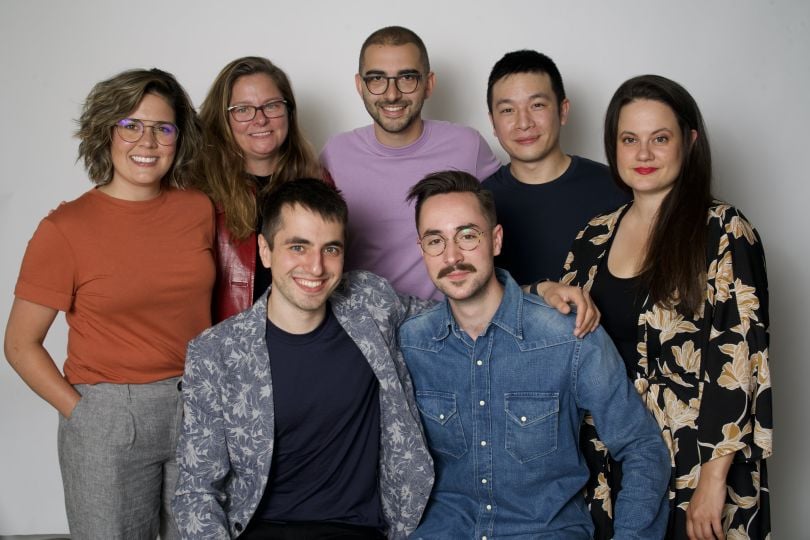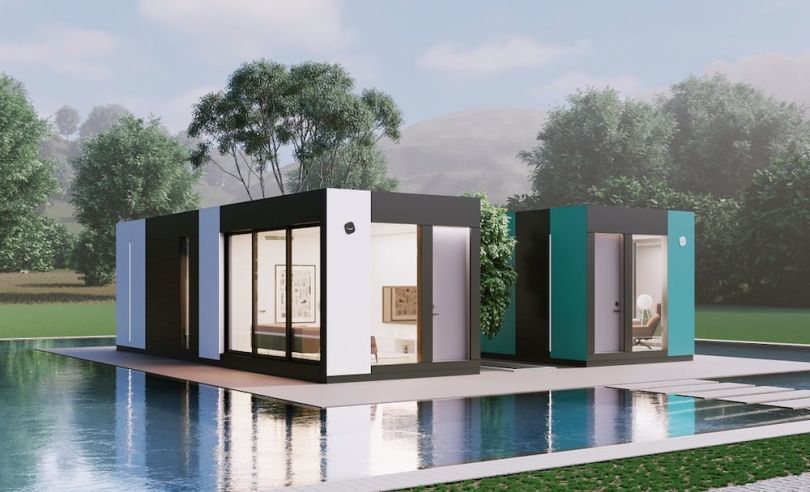Sure, the latest initiatives from the Teslas, Apples and Googles of the industry tend to dominate the tech news space — and with good reason. Still, the big guns aren’t the only ones bringing innovation to the sector.
In an effort to highlight up-and-coming startups, Built In is launching The Future 5 across eight major U.S. tech hubs. Each quarter, we will feature five tech startups, nonprofits or entrepreneurs in each of these hubs who just might be working on the next big thing. Read our round-up of rising startups from last year here.
***
The NorCal vs. SoCal debate is a tale as old as time. Who has the better surf spots? Mexican food? ...Tech scene? Over the years, many Bay Area tech leaders have decided to ditch the cold of Silicon Valley for the warmth of Silicon Beach in Los Angeles. The city of angels has churned out several tech stars including Tinder, ZipRecruiter, Snap Inc. and SpaceX.
But Silicon Beach is home to plenty of promising young startups just waiting for their big break, from studio set software to smart homes and everything in between. These local innovators prove that LA’s tech talent is fit for the A-list.
BUILT IN’S FUTURE 5 UP-AND-COMING LA STARTUPS, Q1 2022
- Cinapse (SaaS)
- Danvas (NFT Display)
- Go Disco (Consumer App)
- Kiira Health (Healthtech)
- Roombus (Smart Homes)

Cinapse (SaaS)
The entertainment industry was hit hard by the pandemic. Traditionally busy sets were forced to find new ways to slow down, stay safe and push forward. Still, many productions had to occasionally put things on pause due to a new coronavirus outbreak. Despite all the madness, the show must go on. Enter Cinapse. The LA-based startup is on a mission to keep crews organized in the face of constantly shifting schedules and safety procedures.
Cinapse CEO Greg Kufera began conceptualizing the company during his run on HBO’s Silicon Valley. The former engineer and startup founder was hired as the lead technical consultant to work with the writers, actors and production departments to make the show as true to the real-life Silicon Valley as possible.
“While I was on set, I realized that advanced technology powers Hollywood in front of the camera, but behind the camera, even the highest profile film and TV productions still rely on dot matrix printers, carbon copy paper and redundant data entry,” Kufera said to Built In.
Kufera met a few of his co-founders, Herman Phillips and Heather Wagner, on set. Phillips was working as the key production assistant and Wagner as the second assistant director. They were both in charge of managing all the behind-the-scenes logistics of the show.
Another one of the company’s co-founders, Roger Tran, worked with Kufera at a few startups prior to the show.
“We came together to digitize their brains into one unified mobile app for crews to seamlessly manage the complicated bureaucracy of the film and television industry,” Kufera continued.
We hope to free up mental space making it easier for crews to focus on their creative work.”
Cinapse operates as a central location for an array of on-set workflows, including several critical processes that have never been digitized before, according to Kufera.
Cinapse takes into account historical production data from set shooting units to more accurately build out their schedules. The app tracks the time it takes for each facet of a production to accomplish a task and provides detailed data on a unit’s efficiency. From scene set-ups to rehearsals, shooting schedules and lunch breaks, Cinapse takes detailed notes.
Facing a delay because an actor is having a meltdown? Does a scene need to be re-blocked? Set leaders can use the app to communicate these details to one another, and the entire team, in real-time.
“We know that life on set is stressful, and crews are currently being pushed to their limits,” Kufera said. “By simplifying the logistics of set, we hope to free up mental space making it easier for crews to focus on their creative work.”

Danvas (NFT Display)
Unless you’ve been living under a rock, then you’ve probably already heard the hottest acronym on everyone’s lips at the moment…that’s right, NFTs. Digital collectibles of all sorts and the companies that sell, display or create them have been popping up all over the world. LA in particular though, has been a hotspot for NFT-related activity as of late. So it’s no surprise that a company like Danvas would choose to take up residence in Silicon Beach.
Danvas bills itself as the first premium, luxury digital art display platform.
“We view this moment as the beginning of a digital art renaissance,” Jeanne Anderson and Hernan Lopez, co-founders of Danvas, said in a statement. “Our goal is to create the most experientially compelling digital art frame in the world — one that invites you to interact with digital art, and ultimately convert you into a lifelong collector.”
We view this moment as the beginning of a digital art renaissance.”
The company’s patent-pending interactive display screens will aim to bring NFT art to life with museum-like quality. With this technology, Danvas hopes legacy art collectors will learn to appreciate the beauty, value and possibilities of the digital art world.
Danvas closed its $7 million seed round just last month. The startup is poised to launch its platform in the spring. Galleries and private collectors can join the waitlist at Danvas.art.

Go Disco (Consumer App)
Finding cool stuff to do around your local city is harder than it sounds. Even if you’ve lived somewhere your entire life, you still may have overlooked a few local gems. LA-based app Go Disco went live last month with a simple goal to help locals find fun activities to do around town.
Following successful roll-outs in New Zealand and Australia, the app is now exclusively available to iOS users in Los Angeles.
“Physical and social connections can improve overall mental health. We created [this company] to help bring people together more in real life,” Sean Conrad, co-founder and CEO of Go Disco, said in a statement. “We provide users with curated experiences that we know they will love and enjoy and streamline the process of finding experiences and activities all in one app.”
We created [this company] to help bring people together more in real life.”
To get started on the app, users first answer a series of questions so that the app can get a better sense of who they are. So for example, if you check-off the “dog lover” box, the app might then suggest you journey to Santa Monica for a corgi meet-up. Maybe you’re interested in exploring a specific neighborhood of the city rather than attending an event. Let’s say you live in Venice Beach, love art and want to get a better feel for what’s going on downtown. The app might suggest a trip to The Broad.
Oddly specific events like these, in addition to general ones, like say, the weekly farmers’ market, can be found on Go Disco.
The company plans to take its platform to New York City, D.C., Miami, San Francisco, Portland and Austin by the end of the year. GoDisco has raised $8.1 million in venture capital financing to date, according to Crunchbase.

Kiira Health (Healthtech)
The healthtech space has received a flurry of financial attention from investors since the top of the pandemic. But few companies in the sector are directly addressing the health issues that women of color are up against, not to mention the discrimination that they face.
Kiira Health is fighting to be one of those few. The company is focused on making the healthcare space more equitable by prioritizing the needs of young women of color.
Racism is rampant in the U.S. healthcare system. Take a look at anesthetic-related maternal morbidity rates and you’ll see clear evidence of the racial disparities that lie within it. Black women die at a rate three to four times greater than their white counterparts, regardless of socioeconomic factors, according to a Washington University study.
... [a] unique opportunity to reach young women at the most pivotal stage of their lives.”
That’s one of the many reasons why platforms like Kiira’s are so important. Implicit bias in the healthcare system stands in the way of many Black women, and other women of color, getting the care that they need.
Kiira’s core strategy includes a mobile app for 24/7 access to virtual care and culture-centered telehealth solutions for gynecology, primary care, and mental health.
“I truly wish I had a women’s health solution like Kiira when I was in college. We are setting ourselves apart by creating this unique opportunity to reach young women at the most pivotal stage of their lives.” Crystal Adesanya, founder and CEO of Kiira Health, said in a statement.
Kiira Health closed on a $4 million seed round just last month. The company plans to use the funding to grow its team and develop products in line with its mission.

Roombus (Smart Homes)
Although it might sound like something straight out of a Disney Channel original movie, tech-enabled smart houses are becoming much more commonplace these days. Torrance-based startup Roombus is manufacturing its own line of smart homes and the company is almost set to go into production.
Roombus is on a mission to make prefabricated homes that are not only affordable, but also eco-conscious. Each housing unit is outfitted with a modern dual inverter and battery system that enables you to store and use solar energy year-round, or function as back-up power.
The future of housing is beyond smart. It’s fully integrated.”
Units also come outfitted with an in-home speaker system that can be used to play music or make calls. If you forget your keys inside, you can unlock the door with your phone. Worried about privacy with the floor-to-ceiling windows? You get to decide how much light comes in, or what’s visible from the outside, with the click of a button.
“The future of housing is beyond smart. It’s fully integrated,” Dámi Jegede, CEO of Roombus, said in a tweet.
Roombus currently has three options available to reserve, the Pico, Nano and Solo. Each option varies in size and is available to either buy or rent. You can reserve one now with a $100 deposit. Homes are slated to go into production on February 22.



